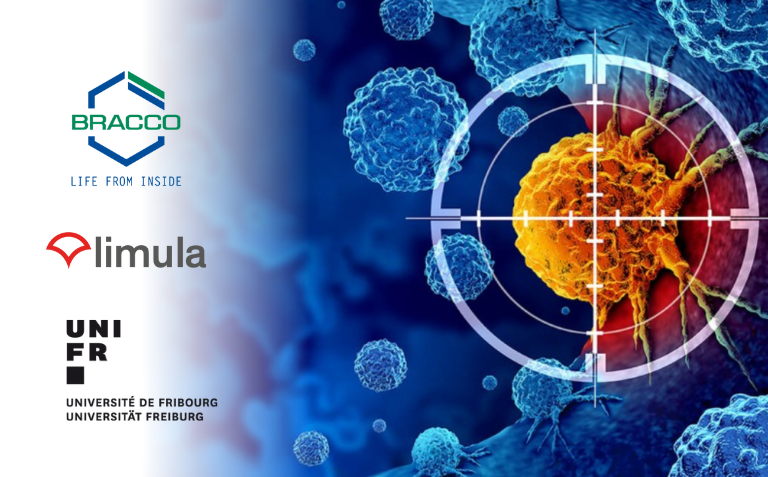
Bracco, Limula and UNIFR Join Forces to Create Efficient Cancer Cell Therapies
Share this article
Cell and gene therapies are promising, but remain extremely expensive. The pharmaceutical company Bracco Imaging, a leader in medical imaging, Limula, a company specialising in the automation of cell therapies, and Professor Nicola Vannini of the University of Fribourg are joining forces to make them more accessible. This public-private partnership is receiving CHF 688,000 in funding over two years from Innosuisse, the Swiss innovation agency.
Cell and gene therapies are revolutionising medicine and raising high hopes among patients suffering from serious diseases, particularly cancer. Several treatments using genetically modified cells (known as CAR-T cells) have already been approved in the United States and Europe. The results are spectacular, particularly in people with leukaemia and other blood cancers.
Despite their enormous potential, these therapies remain out of reach for most patients who could benefit from them. Their manufacture still involves many manual steps, making the process slow, complex and unsuitable for large-scale production. As a result, the cost of a single dose can reach several hundred thousand Swiss francs, an amount that is prohibitive for many patients.
Public-private partnership
However, there is no problem without a solution: Bracco, Limula and the University of Fribourg have decided to form a research and development partnership as part of an innovation project funded by Innosuisse, the Swiss innovation promotion agency, to the tune of nearly £600,000 over two years.
Bracco Imaging is a company specialising in medical contrast agents (products used in MRI or CT scans to see inside the body more clearly). Limula, a Lausanne-based company, is developing a device capable of automatically performing all stages of cell therapy production. The University of Fribourg is represented by Professor Nicola Vannini, a renowned specialist in T cell metabolism.
Innovative approach
The aim of the project is to combine the unique skills of each of the partners to offer a new production method. ‘We have adapted the lipid microbubbles that we normally use as a contrast agent for ultrasound to capture certain cells,’ explains Thierry Bettinger, director of the Bracco research centre in Geneva. ‘These small bubbles change the way the targeted cells float in a liquid, allowing us to isolate them without damaging them.’
As for the fully automated solution developed by Limula, it then allows the targeted cells to be manipulated efficiently, without human intervention that could contaminate or disrupt the process. For Luc Henry, CEO of Limula, ‘this new approach will not only improve the quality of treatments, but also reduce the complexity and costs of the procedure.’
Last but not least, Professor Nicola Vannini will contribute his expertise in the characterisation of immune cells. ‘My team and I will study how and to what extent these technologies influence the health of the cells used in therapies. Our goal is to determine whether this new approach makes treatments more effective,’ concludes the scientist from the University of Fribourg.
Hopes are high, especially as the global market for these cell and gene therapies could exceed £80 billion by 2034.
➡️ Source: Press Release UNIFR | 📸 ©UNIFR